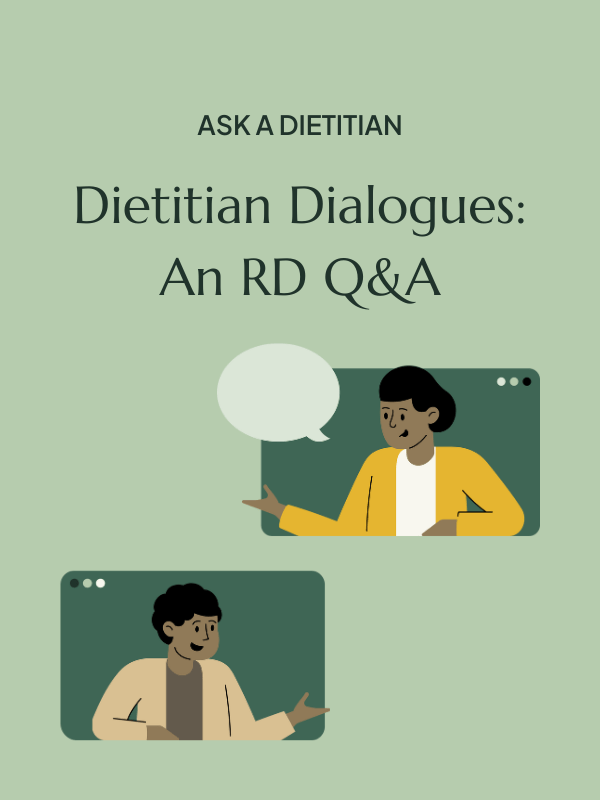We’ve all heard of the Mediterranean diet. Maybe you’ve heard of the DASH Diet as well. Both are longstanding, widely regarded healthy eating styles linked to lower risks for a multitude of diseases.
What if we told you there was another eating style that combines the powers of both and gives your brainpower a boost? Enter here – the MIND Diet.
What Is The MIND Diet?
The MIND (Mediterranean-DASH Intervention for Neurodegenerative Delay) diet, developed in 2015, has been extensively studied for its potential benefits in reducing the risk of Alzheimer’s disease and promoting overall brain health.
It couples Mediterranean diet foods and the DASH diet with an end goal of reducing the risk of dementia and overall decline in cognitive health that is common amongst our older population. Emerging research has shown promising results in observational studies and clinical trials, indicating that following the MIND diet may have a protective effect against cognitive decline and neurodegenerative diseases and may be superior to other plant-rich diets in this regard.
The development of the MIND diet marked a significant milestone in nutritional research, offering a specific dietary framework to preserve brain health and well-being.
The MIND Diet Guidelines
This dietary style focuses on specific foods to include and recommends limiting certain others with a focus on eating whole foods and lots of plants.
MIND Diet Food List
Foods to prioritize
Plant foods are prioritized in the MIND diet due to their rich nutritional profile and numerous health benefits. They are packed with essential vitamins, minerals, and antioxidants that support overall health. Include the following in your eating routine:
Whole grains: Include whole grains such as brown rice, quinoa, oats, and whole wheat bread in your diet.
Vegetables: Consume a wide variety of vegetables, especially leafy greens like spinach, collard greens, kale, and broccoli, which are rich in vitamins and antioxidants.
Berries: Blueberries, strawberries, raspberries, and other berries are particularly emphasized in the MIND diet due to their high antioxidant content, which may help protect the brain.
Nuts: Incorporate nuts such as almonds, walnuts, and cashews, which are good sources of healthy fats, into your diet.
Legumes: Include legumes like beans, lentils, and chickpeas, as they are a great source of protein, fiber, and other essential nutrients.
Fish: Aim to eat fish at least twice per week, particularly fatty fish like salmon, mackerel, and sardines, which provide omega-3 fatty acids that are beneficial for brain health.
Poultry: Choose poultry such as chicken or turkey over red meat and processed meats, which should be limited.
Olive oil: Use olive oil as the primary source of fat in cooking instead of butter or other unhealthy fats.
Wine: Moderate consumption of red wine is allowed in the MIND diet, with one glass of wine per day for women and up to two glasses per day for men.
Foods to limit
In the MIND Diet, there are certain foods that are recommended to be limited, consumed in moderation or avoided due to their potential negative impact on brain health. While the emphasis is on incorporating brain-boosting foods, it’s important to be mindful of the following:
Red meat: It is advised to limit the consumption of red meat, such as beef, pork, and lamb. High intake of red meat has been associated with an increased risk of chronic diseases, including heart disease and certain types of cancer.
Butter and margarine: The MIND Diet suggests minimizing the use of butter and margarine. These fats are high in saturated and trans fats, which have been linked to adverse cardiovascular health outcomes.
Cheese: While cheese is not completely eliminated from the MIND Diet, it is recommended to limit its consumption. Cheese can be high in saturated fats and sodium, which can negatively impact heart health and blood pressure. Choosing low-fat or reduced-sodium varieties and moderating portion sizes can help incorporate cheese in a more healthful way.
Pastries and sweets: Foods like pastries, cookies, cakes, and sugary treats should be limited in the MIND Diet. These foods are typically high in added sugars and refined flour which is less nutrient-dense. Excessive consumption of these foods has been associated with an increased risk of diabetes and cognitive decline. Instead, the MIND Diet promotes the intake of fruits as a natural source of sweetness and encourages healthy dessert alternatives, such as fruit-based options or homemade treats using whole grains and natural sweeteners.
Fried foods: The MIND Diet suggests minimizing the intake of fried foods which tend to be high in unhealthy fats and sodium. Regular consumption of fried and fast foods has been linked to an increased risk of heart disease and cognitive impairment. Instead, the MIND Diet emphasizes home-cooked meals prepared with healthy cooking methods like baking, grilling, steaming, or sautéing with minimal added fats.
The Benefits Of The MIND Diet
The MIND diet has been specifically designed to target brain health and reduce the risk of neurodegenerative diseases, particularly Alzheimer’s disease. While research on the direct neuroprotective effects of the MIND diet is ongoing, several components of the diet have been associated with potential benefits for brain health.
Reduced risk of Alzheimer’s disease:
Alzheimer’s disease is a progressive neurodegenerative disorder that affects memory, thinking, and behavior. While there is currently no known cure for Alzheimer’s, research suggests that adopting a healthy lifestyle, including following the MIND diet, may help lower the risk of developing the disease or delay its onset.
For example, one study published in the journal Alzheimer’s & Dementia found that individuals who closely followed the MIND diet had a 53% lower risk of developing Alzheimer’s compared to those who followed the diet less strictly. The diet’s emphasis on nutrient-dense foods such as berries, leafy greens, whole grains, and healthy fats like olive oil may provide essential nutrients and antioxidants that support brain health and protect against Alzheimer’s disease.
Slowed cognitive decline:
Emerging research indicates that adhering to the MIND diet could potentially slow down age-related cognitive decline. This unique dietary approach places significant emphasis on consuming foods abundant in antioxidants, anti-inflammatory compounds, and essential nutrients like omega-3 fatty acids. The combination of these dietary components has been associated with improved cognitive function and reduced mortality rates.
By following the MIND diet, individuals may be able to better preserve their brain health as they age and potentially experience enhanced cognitive performance. This suggests that the MIND diet holds promising potential in promoting healthy aging and supporting long-term cognitive well-being.
Protection against oxidative stress and inflammation:
The MIND diet provides protection against oxidative stress and inflammation through its emphasis on specific foods that are rich in antioxidants and possess anti-inflammatory properties, such as berries and dark leafy greens. Antioxidants play a crucial role in neutralizing harmful free radicals in the body, reducing oxidative stress, and preventing cellular damage.
By including these antioxidant-rich foods in the diet, the MIND diet supports overall brain health and helps safeguard against the development of neurodegenerative diseases. In addition, the MIND diet’s focus on anti-inflammatory foods further contributes to its protective effects against oxidative stress. Chronic inflammation has been linked to various health issues, including neurodegenerative conditions.
Improved vascular health:
The MIND diet’s alignment with the Mediterranean and DASH (dietary approaches to stop hypertension) diets not only promotes brain health but also contributes to cardiovascular well-being. By emphasizing the consumption of fruits, vegetables, whole grains, lean proteins, and healthy fats, the MIND diet supports the health of blood vessels and helps reduce the risk of cardiovascular conditions.
This, in turn, indirectly benefits brain health by ensuring proper blood flow and oxygen supply to the brain. Maintaining healthy blood vessels and reducing the risk of cardiovascular disease are essential for optimal brain function and reducing the risk of neurodegenerative disorders.
Therefore, the MIND diet offers a holistic approach that combines the benefits of a heart-healthy eating plan with the specific focus on brain health.
Healthy fats for brain function:
The MIND diet places a strong emphasis on incorporating healthy fats into the eating plan, including sources such as olive oil and omega-3 fatty acids from fatty fish and nuts. These fats play a vital role in supporting brain function and have been linked to a lower risk of cognitive decline and neurodegenerative diseases.
The monounsaturated fats found in olive oil have been shown to have anti-inflammatory properties and may contribute to improved cognitive function and brain health. Meanwhile, omega-3 fatty acids, particularly docosahexaenoic acid (DHA) and eicosapentaenoic acid (EPA) found in fatty fish like salmon, tuna, and mackerel have been associated with a reduced risk of cognitive decline, improved memory, and protection against neurodegenerative diseases like Alzheimer’s.
Incorporating these healthy fats into the MIND diet provides essential nutrients and supports optimal brain health.
How Does This Differ From DASH and The Mediterranean Diet?
All three diets share common principles such as promoting the consumption of fruits, vegetables, whole grains, and healthy fats while limiting processed foods, added sugars, and unhealthy fats. While the MIND diet incorporates elements from the DASH and Mediterranean diets, it is a distinct eating pattern with a specific focus on brain health and reducing the risk of neurodegenerative diseases like Alzheimer’s.
It highlights certain foods that are not emphasized to the same extent in the other diets. For example, berries are included specifically rather than grouped in with all fruit because berries tend to be higher in antioxidants.
Similarly, the MIND Diet breaks green, leafy vegetables out into their own category. The MIND diet also provides specific recommendations regarding the number of servings for various food groups. For example, it recommends consuming at least three servings of whole grains per day and at least two servings of leafy green vegetables.
The DASH and Mediterranean diets do not provide such specific serving recommendations.
How Can This Affect My Health?
Recent studies suggest the MIND Diet can reduce risks for all-cause mortality over at least 12 years, with stricter adherence linked to the most protective effects. The MIND Diet has also been shown to reduce cognitive decline often associated with aging, to lower the risk of Alzheimer’s Disease, and to delay the incidence and progression of Parkinson’s Disease.
The MIND Diet seems to maintain and improve cognitive health to a greater degree than other plant-forward diets, including the Mediterranean Diet, DASH, Baltic Sea Diet, and Pro-Vegetarian diets. It is also linked to all of the wonderful positive cardiovascular outcomes associated with both DASH and the Mediterranean Diet.
The Bottom Line On The MIND Diet
There is no one single healthy eating plan that works for everyone. However, research consistently points to the best outcomes when we focus on certain foods. Diets rich in fruits, vegetables, whole grains, healthy fats, and lean proteins are often correlated with better health outcomes.
Like the Mediterranean and DASH eating patterns, the MIND Diet emphasizes these foods and specifically those with higher antioxidant content, which may protect your brain and your heart. The healthy fats from nuts, fish, and olive oil may also lower inflammation and will help keep you full.
However, it’s important to note that the MIND diet is not a cure or guarantee against neurodegenerative diseases, but rather a dietary approach that may contribute to a healthy lifestyle and brain function. As always, it’s advisable to consult with a healthcare professional or registered dietitian before making any significant changes to your diet. Overall, if you have a family history of cognitive illness or simply want to offer your brain the most protection you can, the MIND Diet might be right for you.
Have more questions about the MIND diet? Work with a Culina Health registered dietitian nutritionist to get personalized virtual nutrition care that is covered by insurance.
Any general advice posted on our blog, website, or application is intended for reference and educational purposes only and is not intended to replace or substitute for any professional medical advice, diagnosis, treatment, or other professional advice. If you have specific concerns or a situation arises in which you require medical advice, you should consult with an appropriately qualified and licensed medical services provider.






